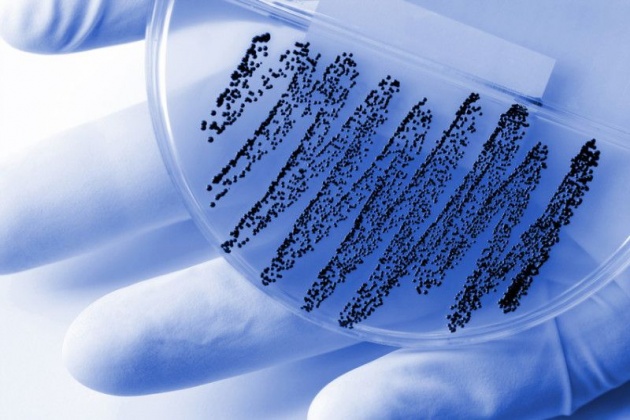
For years, pathogens' resistance to antibiotics has put them one step ahead of researchers, which is causing a public health crisis, according to University Distinguished Professor Kim Lewis. But in new research, Lewis and his colleagues present a newly discovered antibiotic that eliminates pathogens without encountering any detectable resistance -- a finding that challenges long-held scientific beliefs and holds great promise for treating chronic infections like tuberculosis and those caused by MRSA.
Related Articles
The research, which is making headlines around the world and receiving applause from the science community, was published Wednesday in the journal Nature.
Northeastern researchers' pioneering work to develop a novel method for growing uncultured bacteria led to the discovery of the antibiotic, called teixobactin, and Lewis' lab played a key role in analyzing and testing the compound for resistance from pathogens. Lewis, who is the paper's lead author, said this marks the first discovery of an antibiotic to which resistance by mutations of pathogens have not been identified.
Lewis and Northeastern biology professor Slava Epstein co-authored the paper with colleagues from the University of Bonn in Germany, NovoBiotic Pharmaceuticals in Cambridge, Massachusetts, and Selcia Limited in the United Kingdom.
The research team says teixobactin's discovery presents a promising new opportunity to treat chronic infections caused by staphylococcus aureus, or MSRA, that are highly resistant to antibiotics, as well as tuberculosis, which involves a combination of therapies with negative side effects.
The screening of soil microorganisms has produced most antibiotics, but only 1 percent of them will grow in the lab, and this limited resource was overmined in the 1960s, Lewis explained. He and Epstein spent years seeking to address this problem by tapping into a new source of antibiotics beyond those created by synthetic means: uncultured bacteria, which make up 99 percent of all species in external environments. They developed a novel method for growing uncultured bacteria in their natural environment, which led to the founding of NovoBiotic. Their approach involves the iChip, a miniature device Epstein's team created that can isolate and help grow single cells in their natural environment and thereby provides researchers with much improved access to uncultured bacteria. NovoBiotic has since assembled about 50,000 strains of uncultured bacteria and discovered 25 new antibiotics, of which teixobactin is the latest and most interesting, Lewis said.
The antibiotic was discovered during a routine screening for antimicrobial material using this method. Lewis then tested the compound for resistance development and did not find mutant MSRA or Mycobacterium tuberculosis resistant to teixobactin, which was found to block several different targets in the cell wall synthesis pathway.
"Our impression is that nature produced a compound that evolved to be free of resistance," Lewis said. "This challenges the dogma that we've operated under that bacteria will always develop resistance. Well, maybe not in this case."
Gerard Wright, a professor in the Department of Biochemistry and Biomedical Sciences at McMaster University and who was not involved in this research, examined the team's work in a separate article for Nature published in concert with the new research paper. In his article, Wright noted that while it remains to be seen whether other mechanisms for resistance against teixobactin exist in the environment, the team's work could lead to identifying "other 'resistance-light' antibiotics."
"(The researchers') work offers hope that innovation and creativity can combine to solve the antibiotics crisis," Wright wrote.
Going forward, the research team hopes to develop teixobactin into a drug.
In 2013, Lewis revealed groundbreaking research in a separate paper published by Nature that presented a novel approach to treat and eliminate MRSA -- the so-called "superbug" that infects 1 million Americans annually. Lewis and his team discovered a way to destroy the dormant persister cells, which are key to the success of chronic infections caused by MRSA.
Lewis said this latest research lays new ground to advance his innovative work on treating MRSA and other chronic infections.



